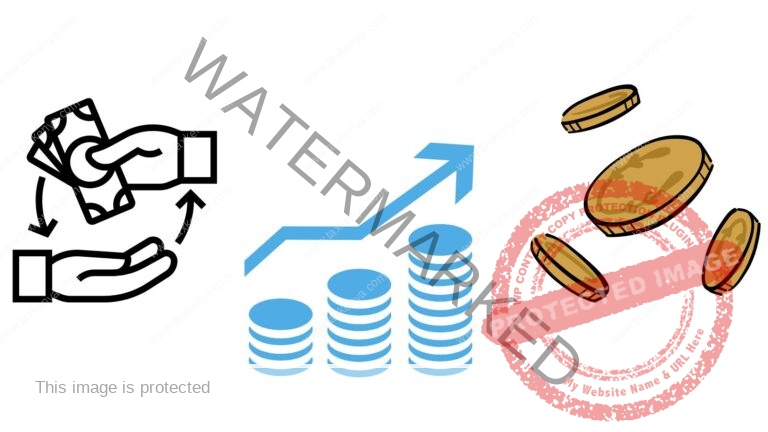Introduction
Are you paying VAT on imported services? Sections 10 & 12 of the VAT Act (2013) guides VAT on imported services. Early this year, the VAT Act was amended to include all importers of services to be responsible for VAT on imported services. Therefore, persons responsible for accounting for VAT on imported services are either:
- Registered for VAT, or
- Not registered for VAT.
Kenya operates consumption-based VAT, meaning we pay VAT because we consume certain goods and services subject to VAT. Let us examine the issues of charging VAT and paying VAT.
Charging VAT
In Kenya, only persons registered for VAT charge (collect) VAT. It is a criminal offense to charge VAT when a person is not registered for VAT. It is also a criminal offense to fail to charge VAT when a person is registered for VAT.
Paying VAT
There is no person exempted from paying VAT in Kenya. It is transactions that are exempted from being charged VAT irrespective of whether the vatable supply is imported or locally supplied. When supply is vatable locally, it is also vatable when imported.
This means that if you purchase a vatable service locally, you were expected to pay the VAT to the local supplier, who should then remit the VAT to KRA. Likewise, when you import vatable services, you are still expected to pay the VAT. But where do you pay the VAT?
Where to pay VAT on imported services
Since the supplier of the imported service is not in Kenya and cannot be registered for VAT in Kenya, the VAT on imported services is paid by the importer of the service directly to KRA.
When is the VAT due
In Kenya, VAT is due at the time of supply. But when is the time of supply? According to Section 12 of the VAT Act (2013), the time of supply for an imported service is the earliest of either:
- Date of the invoice.
- Date service is performed.
- Date of payment, whether in full or in part.
- The date a certificate is issued by an architect, surveyor, or any other person acting as a consultant in a supervisory capacity.
Therefore, VAT on imported service is due at the time of supply, which is the earliest of the above. However, VAT law allows a delay of VAT remittance until the 20th day of the following month.
How much is the VAT?
The VAT rate is the same as that of the locally supplied services. Let us an example to explain this. Juma, a Kenyan who is not registered for VAT, contracted Andrew, who is based in the US, to design them a website for US$ 1,000.
Andrew completed the job, and Juma paid him. Juma imported the service of web design. Had Juma contracted a local website builder, he would have paid VAT for the services at the VAT rate of 14 percent.
Therefore, Juma would have paid US$ 1000 x 14% = US$ 140 as VAT to the Kenyan website builder. According to the VAT law in Kenya, Juma must pay VAT for this service import because VAT law in Kenya is not about the source of the supply, but it is about the consumption of the service.
In one way or another, Juma will have to pay this VAT to the Kenya government. Since Juma is not registered for VAT, he is expected to remit US$140 to KRA as VAT on imported services using his personal identification number (PIN). Remember to change the currency to Kenya shillings, which is the tax currency. KRA provides periodic exchange rates.
How much VAT is remitted?
As an importer of services, how much do you remit to KRA? Section 12 of the VAT Act (2013) details how to determine the amount of VAT on imported service to remit to KRA. The following is a simplified explanation.
- If you are not registered for VAT – remit 100% of the VAT. Established on the imported service. This is because you do not charge VAT on all your sales transactions.
- If you are registered for VAT and the taxable services were used for an exempt supply – remit 100% VAT on the imported service. For example, you are a manufacturing company, and you sell both vatable and non-vatable supplies, and you imported the service for a machine that is used to manufacture 100% exempted goods.
- You are registered for VAT and sell both vatable and non-vatable supplies, and the imported service was used for both exempt the total 140 If his sales are VAT exempt because:
- If you are a supplier of 100% vatable supplies, there is no VAT on imported services to pay because it would result in a VAT credit position.
In our example above, since Juma is not registered for VAT, meaning that he does not levy VAT on all his sales, he will remit 100% of the VAT to KRA.
What businesses are affected by this requirement
Any person who imports services into Kenya is expected to account for VAT on imported services. This is irrespective of whether they are registered for VAT or not. The majority of VAT-registered persons are aware of this requirement.
However, many small businesses may not be aware of this requirement. The following are some of the imported services that subject to VAT on imported services.
- Annual domain name registration.
- Hosting services e.g., GoDaddy, Hostgator, Bluehost, Siteground, etc.
- Editing services e.g., Grammarly.
- Design software, e.g Designrr.
- Data gathering software.
- Course LMS e.g., LearnDash LMS.
- Online courses.
- Education packages.
- Ebooks.
- Films.
- Videos.
- Music.
- Podcasts.
- Games.
- Website assessments.
The list is endless. The question: what services do you pay for abroad?
Will KRA ever know about the imports?
Yes! This is because of the way imported services are paid for. The following are some of the payments methods that Kenyans use to make the payments:
- Direct bank transfer.
- Debit cards e.g., Visa, Equity debit card, KCB debit card, Family Bank debit card, etc.
- Credit cards e.g., Visa, etc.
- Paypal, Pesapal, Ipay, Jenga, and all other money payments
- Mobile money transfer e.g., Mpesa, Airtel, etc.
Besides, as long as you access the service from an Internet Service Provider (ISP) address in Kenya, KRA will have access to that data. This data is available from the Communications Authority of Kenya (CAK).
Justification for VAT on imported services
The idea of requiring the importers to pay VAT is because VAT in Kenya is on consumption, and if the person had purchased the same services locally, they would have paid VAT.
By importing the services, the person denied the local person business. They purchased the service at14% cheaper. And in the interest of creating a level playing ground, everyone must pay VAT.
Way forward
- Establish all the services that you have imported.
- Establish the VAT amount.
- Input the details in i-Tax.
- Generate a payment in i-Tax.
- Make payment to KRA either:
-
- Through direct money transfer.
- Through KRA appointed banks.
- Mobile Money e.g., Mpesa, Airtel, etc.
How you will save money?
For not making tax VAT payment, you will be subjected to the penalty rate of 5% on the outstanding amount of VAT plus interest at the rate of 1% per month or part of the month.
The tax interest is based on the principal VAT and the penalty amount. Therefore, the more you delay the VAT payment, the higher interest you will pay. So if you pay early, you will save on the interest.
Question
Was this article useful? Please let us know.






